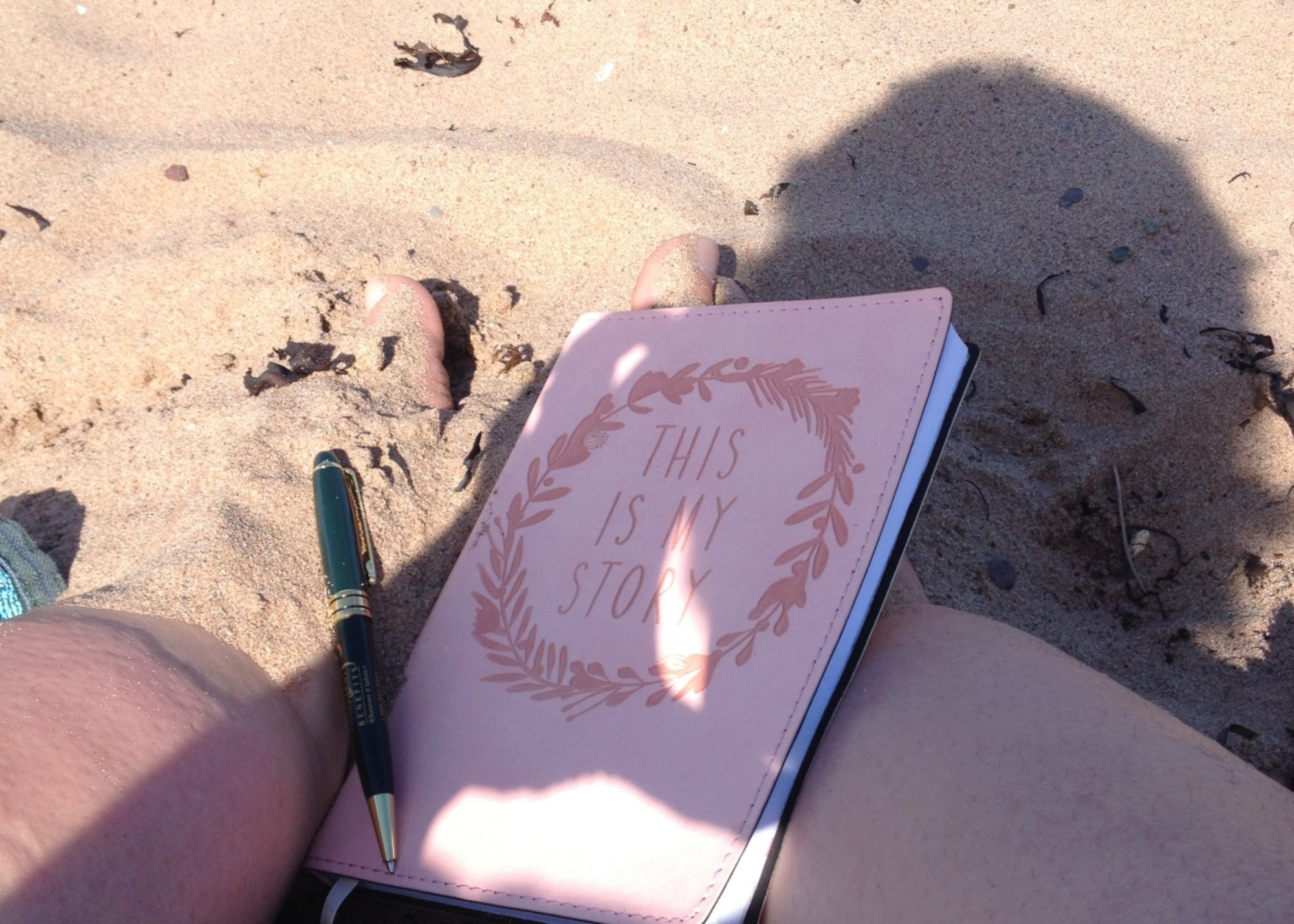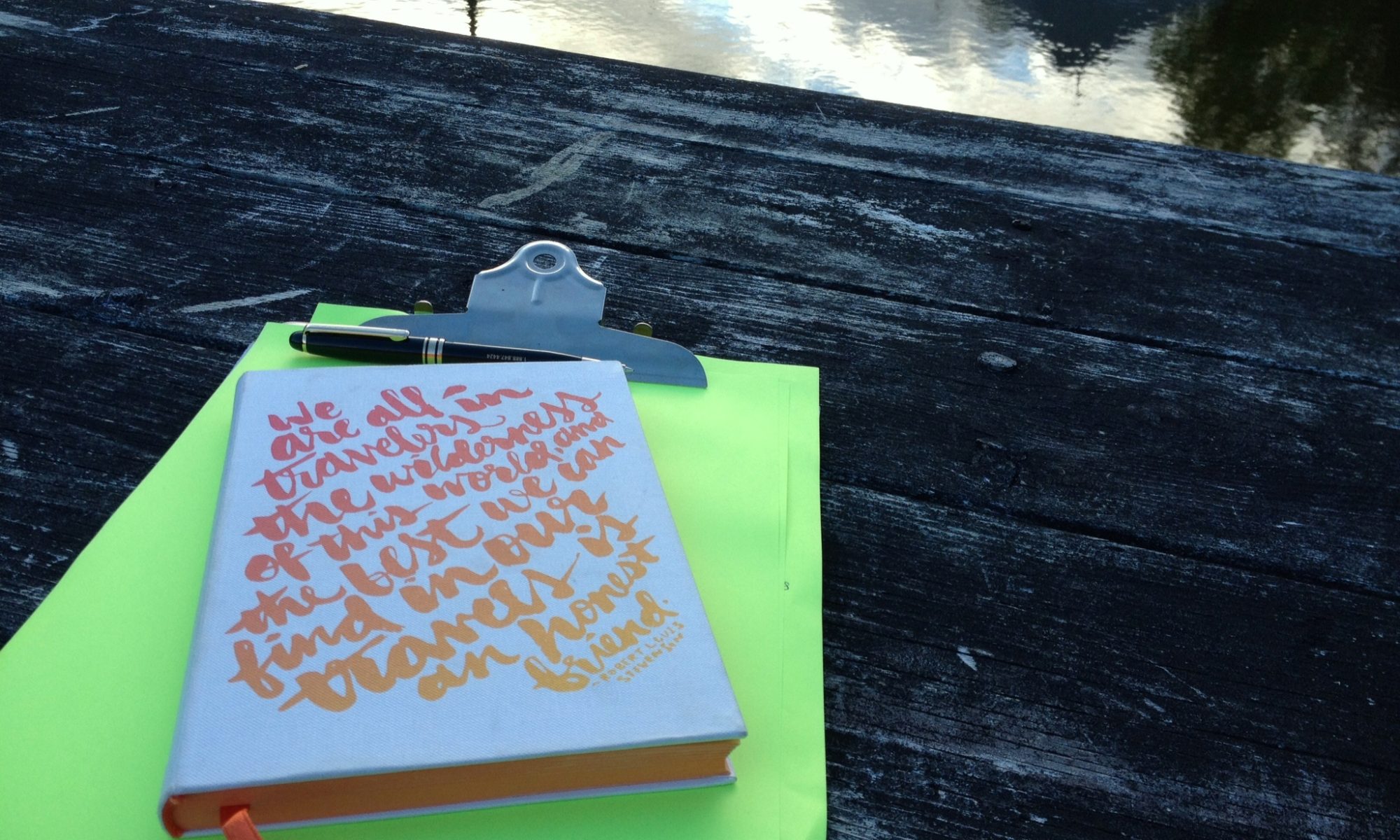It’s NaNoWriMo, Week 2 … and what a week it has been.
NaNoWriMo is about connecting those writing urges with the physical space and action to write. It was an invitation I was excited to engage in. Writing daily this past week started in joy, was prompted by joy. But it didn’t take long for joy to become chore. I’m good at that. So good and so committed am I to that particular pattern that in the moment I’m blind as to why I do it. I had never thought to question it. Stop to ask the intelligence of it. Query whether this pattern continues to serve me.
Today is the day. This moment is the moment.
That’s often why writing is so intriguing, and then so avoided. Words are a straight line to our signal, our very essence of self and in the daily act of engaging the flow, so much comes to light that was once buried deeply.
I had a full day planned. Morning meeting, lunch meeting, tea meeting, afternoon meeting, all crafted in a careful day to be on the road. Then I awoke before dawn to stomach churning, intestines growling and venting fire like an angry dragon. It was not the shifting fire that awakened me. It was a weather alert on my phone, warning of snow squalls later in the day, at the time I would be driving home. A weather alert that persisted on my home screen, yet failed to show up in my weather app itself. Strange, only when viewed from the left side of the dotted line. From the quantum realm, it all made sense.
I lay in the dark, curled in on my choice point. The stomach churning I was prepared to push through, to watch what I ate and hang close to a bathroom, and the day would unfold as planned. Snow squalls, though, were a trigger. I hold the belief that road travel is to be avoided in bad weather, that I do not belong on a road slogging through blinding snow or rain unless what awaits me is a clear and aligned choice. This weather alert appearing as it did was at just the right time for me to choose: is today the day for me to be on the road? Or is it a day to be listening to my churning gut as it calls for an all stop on the routine, and an all clear on the day ahead in terms of commitments, outcomes, and expectations. Dropping beneath the story of snow or no snow, breathing into the churning and allowing the intelligence in all of it, the choice was clear. All stop. Clear the day and allow it to unfold moment by moment.
I felt my body relax, the congruency of being heard and heeded. I crafted and sent emails, one by one, releasing myself from the commitments of the day. Then I braced against the onslaught of stories. Giving in to my every whim. Lazy. Breaking promises. Flighty. Unreliable. Who was I if not someone I could be counted on to show up?
Who am I, indeed. I am becoming someone who honours her inner cues, surrenders to her divine signal, and keeps her promise to be authentically herself in the moment as it presents. I can be counted on to show up when it is internally aligned with myself. When there is no internal alignment, there is no need for me to be wherever it is I said I would be. There is only the need to maintain patterns and external reference points. Useful to me in an externally-referenced life. Not useful to me in the exploration of an evolving life. Keeping myself in place, running familiar patterns, is like rereading a book. It’s enjoyable when mindfully chosen as an oasis. It’s useful when mindfully present for new lessons that emerge. Otherwise, it’s mindless distraction rooted in the past while hoping for different in the future. No presence in the present. No power. No change.
I am reliable to my emerging awareness, to what I know I know, and what I know I don’t know, trusting in my impulses even when I am unclear where they will lead. Allowing my choice to reschedule my meetings today then allowed awareness of how I was running patterns mindlessly, overlooking my intention to allow space and awareness for creation, to rewire my nervous system and continue in creation of the life I want.
Trying to be in two worlds at once: the world run by my beliefs, and the world I am mindfully creating.
For three days I have felt edgy, disjointed, burning from the inside out. Three days ago, striving to complete my daily writing session, I felt like my head was under a faucet that kept opening, words flowing faster than I could write them. Choking, breathless, panicked, I typed faster and faster until my arms gave out and I screamed in frustration. Sitting there, struggling to breathe, chest clamped and back spasming, I knew this was why I didn’t work on my manuscript, my memoir, the story I’ve been struggling to write for six years. Writing was physically painful, words straining to emerge or streaming out untapped, constipation or diarrhea, both agonizing and disgusting, nothing I wanted to experience. In rare moments I touched my greatness, words gliding in order as imagined, powerful and energizing to write, to read, and to read again. Nailed it. Yet those moments of alignment were fleeting, uncontrollable, unpredictable, and rare. Like a lottery win.
I am divine creator. What did I choose to create?
Victimhood. A constipated, irritable-bowelled victim unwilling to own her power of creativity.
What’s the intelligence in that?
Nailing it streamlines and fast-tracks my evolution, leaving the landscape of my past as a blur behind me, plunging me into a realm infinite and unfamiliar. The ‘I don’t know I don’t know’, where evolution takes flight, where lives unfold in nanoseconds.
Where I’ve long told myself I don’t belong. Like a highway in a snowstorm, I should be off the road and home where it’s cozy. In the realm of I don’t know, I should be out of the void and into my cozy space where I know.
That’s the story running my life, deeply and unchallenged until now.
That’s a story I come face to face with today and choose: does this serve who I am, and who I am becoming?
Coming back to a cozy space …
I sit here in a house I used to own, in an office that was once mine and before that, was the nursery for my children. The nook holding my desk once held a crib, where one by one, my babies slept and grew to toddlers, just in time to make way for a new sibling. Except for the youngest, of course. With her ascension to a ‘big girl room’ the crib was dismantled and the nursery dissolved, shelves once lined with stuffed animals replaced by bookcases, the nook filled with a desk and computer. I am back because this youngest of my babies is turning 19, her ‘big girl room’ now a dorm at university and the world she is mindfully creating. Her bedroom remains in the house for special visits like this one. My new home, our former family cottage, is not home for her, for any of my family. One bedroom, all one person needs, except space for guests, and for all of the things I adore. I am in the process of creating a new space as home. I have blueprints. I have a process. I do not have the money. Holding the construct of money as lacking, I cling in fear to the income streams I have, familiar and predictable. My part-time job, for which the day of meetings was organized. My freelance clients, dependable and a function of intellect, for which I’ve been struggling to finish a project. My own company, available for anything I create … and I create little. I allow a tiny space and flow of energy, heeding the undercurrent that tells me to avoid the unknown and ‘I don’t know’ and preserve that which is known. I can do it all, and then some, if I choose to allow it. What is the intelligence is choosing to block it?
Avoiding the ‘I don’t know.’ Yielding to control. Heeding patterns aged and looped. Keeping me in place. Like the place I love yet is too small to support the life I am creating. I run the story that I cannot afford it, can never afford it. The reality is I haven’t tried. I have not applied for a mortgage or business financing or grant programs that could offer the funding I seek. I have told myself no before they could. I have gone with the known rather than step into the unknown. I have stayed as the person who as identity owns a tiny cottage, rather than inviting who else as the person who creates her dream home.
And in this moment, I have run from that conversation with myself to hide in the physical realm and early family system of being mom in the house where I raised my children, the original nest from which they and I have flown.
Why have I come back? There is intelligence in it. To awaken myself in places where I’m still asleep, to shine light on the habits still running my life from the underside, to be authentically myself not just in the solitude of my own comfortable creation, but everywhere, with everyone, with awareness and ease. Dropping the need to fight for my life in the light of an externally-referenced world. To trust in my internal cues regardless of the choices and chaos embraced by others.
And that means owning how my oasis is in truth a distraction. It hurts to come back to this house. It remains my daughter’s home, but is no longer mine. I feel sad for leaving her, angry that I had to. Returning to this space as a guest, I miss my own home, the flow and ease and joy I find there in living my life unapologetically, moment by moment. Here, in the house, to be with my daughter, is incongruent because my life space is incongruent. I am stuck in the past while bracing against my emerging future, the money talk about my new home a story coating it all. It hurts to be here because I no longer belong here, yet I brace against where I belong. Not that my new house is built or not. Within, in my evolved identity as someone who is reliable and good at my job and loves my children not because I comply with expectations and routines, but because I honour myself every moment of the day and trust myself to be my own best teacher, my own best advocate, my own safety, my own infinite power, no matter what that looks like.
In this moment, it looks like letting go of everything, then choosing mindfully, one by one, what to keep and what to release. Of possessions. Of commitments to organizations. Of beliefs. Of creations.
I created today to sit here with the sensations that wracked my body until I noticed, allowed the space, invited the flow. These are the words. They sit, awaiting my mindful reading, choosing whether to keep or release. This is where I belong. There is congruency in that.
And that, my friends, is the power of words. Not sticks and stones. Not word counts and publication rates. Straight line to who you are and who you can become. If you choose to allow the time to write, read, and listen.
Thanks for reading,
- Jennifer
Jennifer Hatt is an author, communications consultant, publishing doula and CODE Model Coach™ .
ownyourstorynow.com
To learn more about Decloaking and Living Authentically and other offerings in the WEL-Systems® body of knowledge,
visit https://wel-systems.com/
the brilliant website of its founder, Louise LeBrun, https://louiselebrun.ca/)
and the powerful offerings of CODE Model Coaches™ Stela Murrizi, https://sparkingthesacred.com/
and Sheila Winter Wallace, http://bodygateways.com/


